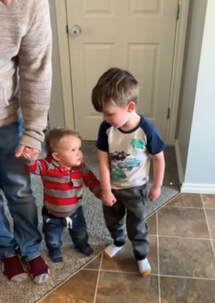
Andy was delighted with himself, and Ben was oh, so proud. Neither of them will likely remember this moment, but I hope I’ll never forget it.
Watching it, I realize it won’t be long before those first steps are taken. I’m in no hurry but it’s an important milestone in the development of an almost one-year-old.
I happened to see this little ‘not-quite-first step’ when I was away on business. I was working with an organization who are also preparing to take their first steps. Their first steps will be so different than those of Andy. In their case, the organization has been around for a long time. They’ve taken steps before. But somewhere along the way their very foundation was compromised. It was no longer the sturdy base needed to support the important work trying to be done there.
The values upon which it was founded were all but forgotten, the leadership lost its roadmap and the discord felt throughout was toxic.
That was the mucky time, they told me. Our time in hell. Those are strong words.
When an organization or individual has come through a mucky time, a time from hell, it can be difficult to even think about a first step, and even more difficult to take it.
Often the impulse is to simply ‘leave all that behind us’ and start to build from here. From the present. After all, we can’t go back and change the past and there isn’t much to be said for dwelling on it, so we might as well spend our energy on forward movement. Luckily, the leaders in this organization are not impulsive. They are thoughtful, reflective and insightful. They recognized that rebuilding on an unstable foundation would very likely set them up for failure. I doubt they’d have landed in the same muck they were in before but certainly they would have landed in muck.
Instead, they chose to spend some time re-building, reinforcing their damaged foundation, before striking off forward. They had to take a step (or two) backward, in order to lay the solid path forward.
This organization is lucky to have such leadership. They are lucky to have at the helm, a person who understands the importance of this foundational work. They have leadership who also understand the wisdom that can be found in the staff who slogged through that muck. They could clearly identify that backward-walking was needed before forward progress could be achieved.
Time and time again in our lives we are placed in a position of needing (or wanting) to take a first step. It’s a scary place to live. We know once we take that first step, things will certainly change. We know we can be tempted to pretend we’re ready to move forward when in fact, if we’re standing on a shaky foundation, it usually indicates we’ve left some unfinished business behind.
It’s hard to know when it’s the right moment. And it’s hard to know which direction to step.
Jim’s mom, now ninety-two, took a huge first step a couple of weeks ago. She lives alone. Throughout the pandemic she has recognized she misses the company of being with others, especially at mealtimes. Knowing the solution to the problem was going to be difficult to solve within the four walls of her home, she decided to take a test drive, a trial run, of a brand-new senior’s residence. Active Senior Living, it boasts on the outside sign. The two-week trial was designed to give her a chance to test the foundation of her decision. It’s not up to me to give you her final decision, but if I were a betting human, I’d bet we’ll see a ‘for sale’ sign up on her old place before long. That is, if my difficulty trying to reach her is indicative of what I suspect; she’s already made friends and is busy trying to decide which activities to enjoy!
Each of these three, almost one-year-old Andy, a middle-aged organization, and a 92 year old mother-in-law, has taken a first step. Each has done it differently. Andy stepped forward. The organization stepped back. And Jim’s mother stepped sideways. Yet they had something in common. Each made sure supports were in place as they struck out. Andy was literally flanked on either side by two loving supports. The organization gathered their entire team, and together carefully planned how they could support one another as they boldly stepped backward and butted up the foundation in preparation for their steps ahead. Jim’s mom has the love and support of her entire family as she has stepped sideways to test the waters of potential, knowing she will be supported in whatever choice she makes.
Occasionally each of us finds ourselves in a position to take a first step. May we stand on a solid foundation and be supported on both sides as we choose our direction.
My inquiry for you this week is, ‘What direction am I stepping?’
Elizabeth is a certified professional Leadership Coach, and the owner of Critchley Coaching. She is the founder and president of the Canadian charity, RDL Building Hope Society. She works with corporations, non-profits and the public sector, providing leadership coaching. She creates and facilitates custom workshops for all sizes of groups. She has expertise in facilitating Strategic Plans for organizations and for conducting leadership reviews. Contact Elizabeth to learn how to decide on the direction of your first step.
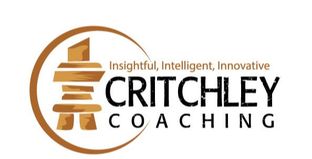
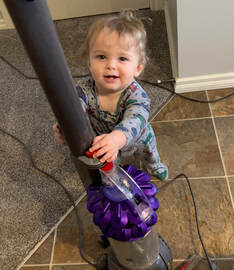

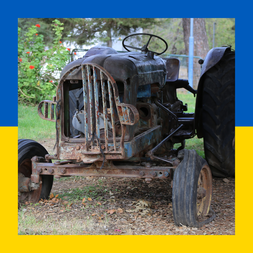
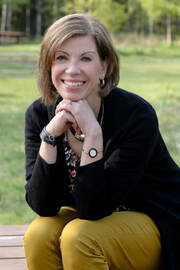
 RSS Feed
RSS Feed